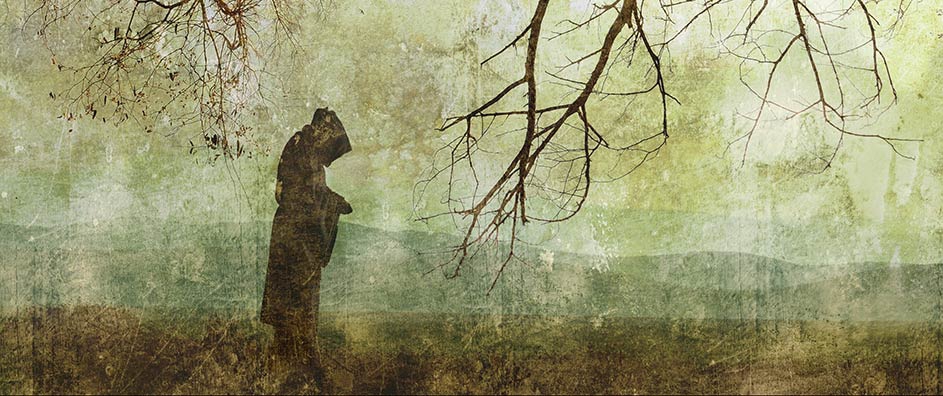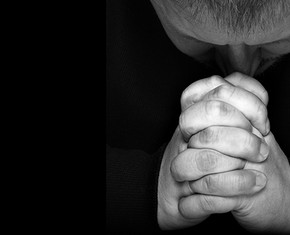The views expressed in our content reflect individual perspectives and do not represent the authoritative views of the Baha'i Faith.
The late mythologist and philosopher Joseph Campbell, in his well-known series of televised interviews with the journalist Bill Moyers, noted that:

The New Testament teaches dying to one’s self, literally suffering the pain of death to the world and its values. This is the vocabulary of the mystics… You die to your current life in order to come to another of some kind. But, as [Carl] Jung says, you’d better not get caught in a symbolic situation. You don’t have to die, really, physically. All you have to do is die spiritually and be reborn to a larger way of living. – The Power of Myth, p. 141.
Elsewhere, Campbell elaborated further on this theme, in his wonderful way of synthesizing across religious traditions, now in the context of Hindu teaching:
Only when that mortal “you” will have erased everything about itself that it cherishes and is holding to, will “you” have come to the brink of an experience of identity with that Being which is no being yet is the Being beyond the nonbeing of all things. – Myths to Live By, p. 95.
Because death follows life and not the other way around, these ideas hold a great paradox. Nearly every religious tradition and sacred scripture uses “life and death” terminology in similar ways, often introducing the theme as a riddle, as does the Qur’an:
He causeth the living to issue from the dead, and He is the one to cause the dead to issue from the living. – Al-Qur’an 6:95.
To appreciate the intent of these paradoxes, Joseph Campbell asks us to see “death” and “life” as symbolic terms that do not refer to physical life and death, but rather to spiritual states.
The words of Jesus Christ reinforce this teaching. He responded to a puzzled man who would not agree to follow him until after he had gone to “bury his dead father” to “let the dead bury their dead”–signifying that people who are physically alive can be spiritually dead. Elsewhere, in a conversation with his adversaries—the ecclesiastical authority of the time–Christ says:
Woe unto you, scribes and Pharisees, hypocrites! for ye are like unto whited sepulchres, which indeed appear beautiful outward, but are within full of dead men’s bones, and of all uncleanness… – Matthew 23:27.
Unfortunately such rich symbolism is often lost on the literal fundamentalists who hold ecclesiastical power, not only in Christ’s time but even today. A recent report from the Iran Human Rights Documentation Center, issued on 30 July 2014, noted that:
The Qur’an does not explicitly prescribe the death penalty for apostasy. A number of verses in the Qur’an, however, have been interpreted to mean that apostates should be killed. Verse 2:217 has often been interpreted as prescribing the death penalty for an apostate. This verse states, in part, “And if any of you turn back from their faith and die in unbelief, their works will bear no fruit in this life and in the hereafter; they will be companions of the fire and will abide therein.” Fakhreddin Razi, the renowned Sunni theologian (1149-1209), interpreted this verse as stating that an apostate should be killed.
What does the Qur’an mean by “die in unbelief?” Given the theme presented here, it refers not to dying a physical death (as Razi apparently thought), but rather dying spiritually owing to abandonment of faith, an interpretation that finds support by the remainder of the verse: “their works will bear no fruit in this life…”
This rephrases the “all uncleanness” factor described by Christ’s words, where unbelief equates to the “death” of the soul. By failing to see the symbolic meaning of this verse from the Qur’an and others like it, present day Shi’a clerics in Iran have, ironically and tragically, ordered the death penalty for people they consider apostates. These clerics have gotten caught in the symbolic situation Joseph Campbell warned us about.
In one of his many marvelous explanations of sacred texts, Abdu’l-Baha clarified the meaning of Christ’s words:
In the same way, physical life, in comparison with eternal life in the Kingdom, is considered as death. So Christ called the physical life death, and said: “Let the dead bury their dead.” Though those souls possessed physical life, yet in His eyes that life was death. – Some Answered Questions, p. 305.
The paradox expands when we consider the symbolic death that allows us to live fully and abundantly, to the larger way of living that Joseph Campbell described. The crucifixion of Christ seems to be emblematic of the process, like a threshold of passage from death to life, and one that we are all invited to participate in. Baha’u’llah in numerous ways expresses this process of spiritual transformation from death to life, such as in this wonderful prayer:
I was as one dead, Thou didst quicken me with the water of life. I was withered, Thou didst revive me with the heavenly stream of Thine utterance which hath flowed forth from the Pen of the All-Merciful. – Baha’u’llah, Baha’i Prayers, p. 20.
Dying to live: now there is a paradox worth living for.
















Comments
Sign in or create an account
Continue with Googleor